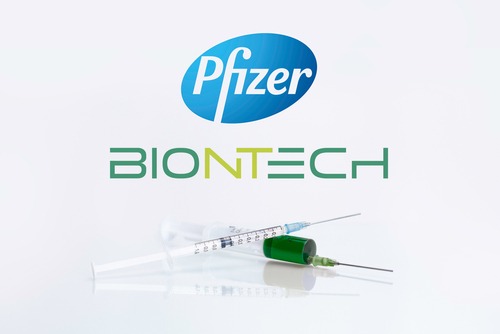
Pfizer Inc. and BioNTech announced the beginning of an evaluation into the safety and immunogenicity of a third dose of their COVID-19 vaccine last week to study the effects of a booster vaccine against emerging SARS-CoV-2 variants.
This will be offered to up to 144 participants from the phase one study of the original vaccine, 6-12 months after their initial two-dose regimen. They will be split into two age groups: those 18-55 and those 65-85. It will be part of the Phase 1/2/3 trial, even though the companies have to date seen no indications that current variants cause any significant reduction in the protection provided by the first two doses.
“While we have not seen any evidence that the circulating variants result in a loss of protection provided by our vaccine, we are taking multiple steps to act decisively and be ready in case a strain becomes resistant to the protection afforded by the vaccine,” Albert Bourla, chairman and CEO of Pfizer, said. “This booster study is critical to understanding the safety of a third dose and immunity against circulating strains. At the same time, we are making the right investments and engaging in the appropriate conversations with regulators to help position us to potentially develop and seek authorization for an updated mRNA vaccine or booster if needed.”
Those discussions include the U.S. Food and Drug Administration (FDA) and the European Medicines Agency and are focused on an additional registration-enabling clinical study to assess a modified mRNA vaccine for use specifically against variants. While maintaining the same base, this vaccine would focus on adapting to the threat of B.1.351, a South African strain of the virus that has raised major concerns among health experts.
The end goal is to rapidly update the existing vaccine to meet potential threats from circulating strains of COVID-19. To achieve that, they hope to acquire a regulatory pathway similar to that which flu vaccines regularly go through.
“Our proactive clinical development strategy aims to create the foundation today that will enable us to address the challenges of tomorrow. We want to be prepared for different scenarios,” Ugur Sahin, CEO and co-founder of BioNTech, said. “Therefore, we will be evaluating a second booster in the current regimen as well as preparing for a potential rapid adaption of the vaccine to address new variants which might escape the current version of our mRNA-based vaccine. The flexibility of our proprietary mRNA vaccine platform allows us to technically develop booster vaccines within weeks, if needed. This regulatory pathway is already established for other infectious diseases like influenza. We take these steps in order to ensure a long-term immunity against the virus and its variants.”




